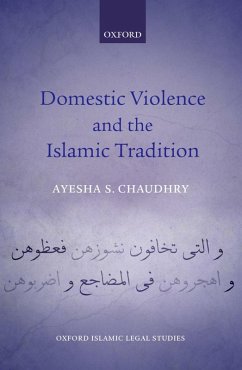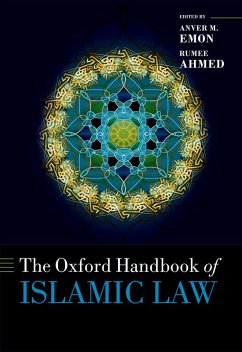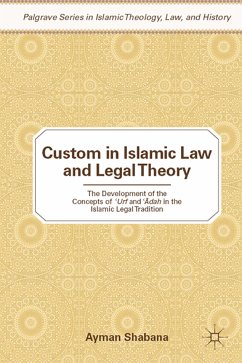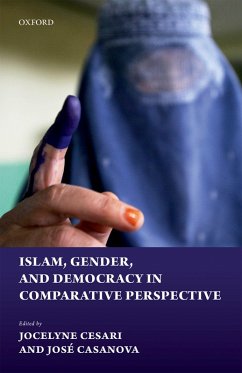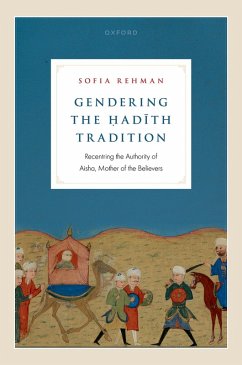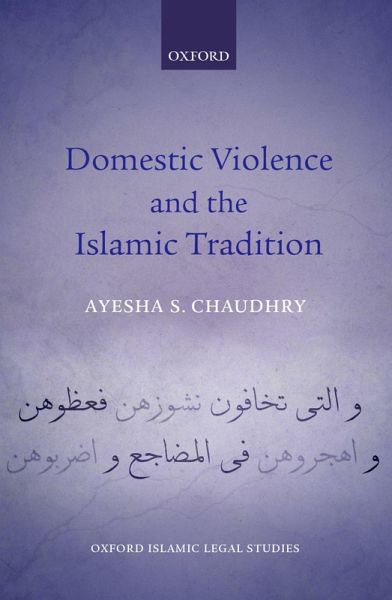
Domestic Violence and the Islamic Tradition (eBook, PDF)

PAYBACK Punkte
8 °P sammeln!
Modern scholars of most major religious traditions, who seek gender egalitarian interpretations of their scriptural texts, confront a common dilemma: how can they produce interpretations that are at once egalitarian and authoritative, within traditions that are deeply patriarchal? This book examines the challenges and resources that the Islamic tradition offers to Muslim scholars who seek to address this dilemma. This is achieved through extensive study of the intellectual history of a Qur'anic verse that has become especially contentious in the modern period: Chapter 4, Verse 34 (Q. 4:34) whi...
Modern scholars of most major religious traditions, who seek gender egalitarian interpretations of their scriptural texts, confront a common dilemma: how can they produce interpretations that are at once egalitarian and authoritative, within traditions that are deeply patriarchal? This book examines the challenges and resources that the Islamic tradition offers to Muslim scholars who seek to address this dilemma. This is achieved through extensive study of the intellectual history of a Qur'anic verse that has become especially contentious in the modern period: Chapter 4, Verse 34 (Q. 4:34) which can be read to permit the physical disciplining of disobedient wives at the hands of their husbands. Though this verse has been used by historical and contemporary Muslim scholars in multiple ways to justify the right of husbands to physically discipline their wives, progressive and reformist Muslim scholars and activists offer alternative and non-violent readings of the verse. The diverse and divergent interpretations of Q. 4:34 showcases the pivotal role of the reader in shaping the meaning and implications of scriptural texts. This book investigates the sophisticated and creative interpretive approaches to Q. 4:34, tracing the intellectual history of Muslim scholarship on this verse from the ninth century to the present day. Ayesha S. Chaudhry examines the spirited and diverse, and at times contradictory, readings of this verse to reveal how Muslims relate to their inherited tradition and the Qur'anic text.
Dieser Download kann aus rechtlichen Gründen nur mit Rechnungsadresse in A, B, BG, CY, CZ, D, DK, EW, E, FIN, F, GR, HR, H, IRL, I, LT, L, LR, M, NL, PL, P, R, S, SLO, SK ausgeliefert werden.





